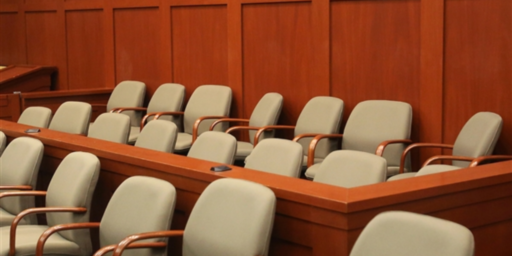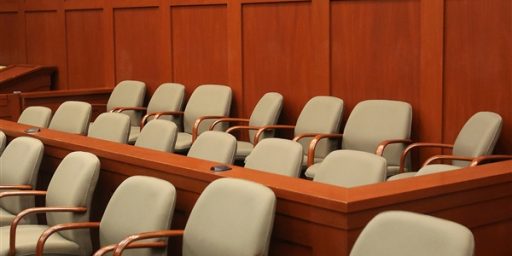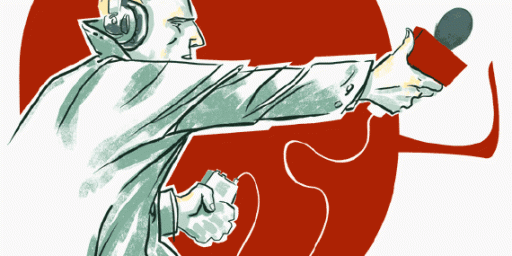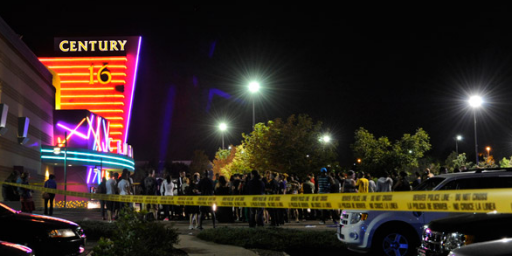Eat A Donut, Get Out of Jail Free
I agree judges need to remain impartial, but I do not believe they need to be isolated from society. There is probably some fine legal point here that supersedes common sense
James Degroff, once convicted for child molestation, is getting a second chance to proving he never molested a 6-year-old girl four years ago. What’s so rare about this case is not that it’s going back to court, but the reason why. The answer lies in the back halls of the Thurston County Courthouse.
In 2003, the first trial judge unwittingly unraveled the case by accepting an ordinary doughnut. The trouble is, the judge took the doughnut from a juror deciding the case.
After Degroff’s conviction, his attorney accused Judge Richard Strophy of making biased comments about Degroff during sidebar conversations. The claims could not be substantiated. But because Judge Strophy took the doughnut and later had a brief conversation with a different juror about a potluck dinner, an appeals court threw out the first verdict and ordered a new trial.
We are talking a county with a population of 229,000 (2000 Census — Thurston County, which includes the state capitol, Olympia). So we are to excuse every possible juror who has contact with a judge? The extreme of this case would be a small county judge, where most of the college-educated citizens are in the same social circle as the judge(s). When I lived in a town of 5,000, I knew every lawyer, most MDs and nurses, Police Chief and Sheriff, and half the school teachers (no judges).
What is next?
“It’s unbelievable a child would have to testify to horrific acts of child molestation,” said deputy prosecutor Christy Peters. “I can’t even imagine what is going through a child’s mind when she has to testify to this on two occasions.”
Judge Strophy seems equally bothered by it all. He said the case was “technicality upon technicality…some illusion of impropriety weaved together by a defense attorney and the appeals court went for it.”
Right or wrong, the second trial gives Degroff the benefit of time. The victim’s memory may have faded a bit.
And for an attorney skilled enough to turn a doughnut into a new trial, turning a girl’s inconsistency into an acquittal might not be so far fetched.
Amazing. Kudos to the lawyer, but this is a case of the system creating child abuse. I do not blame the lawyer here, he took what he had and defended his client on appeal — the problem is in the system. I worry about where this trend will lead. Yes, the contact in this case occurred during the trial, But if I know the judge and see him in the courthouse cafeteria, I might ask if he is going to the High School Basketball game or such. Judges and Jurors are citizens too, with lives outside the courthouse.






I have a feeling that there’s more to this story than meets the eye. Usually stuff like this would be considered a “harmless error” and not sufficient to overturn a conviction I’d wager that the appeal uncovered some actual questionable decisions by the judge that can be pointed to as evidence of bias.
The opinion can be found here.
One finds that the appellate court is, by its own admission, “troubled.” But beyond that bad pun and cheap shot, one finds that the trial judge’s communications with the jury went beyond accepting a donut, and the appeals court spells out why this requires a new trial:
So, no — the conviction wasn’t thrown out because the judge accepted a donut. This was an error but might well have been ruled a harmless error. The conviction was thrown out because the judge met with a juror privately in his chambers and because the judge decided, off the record, out of court, and without notifying counsel, that a juror who recognized someone in an evidence video was not disqualified.
In other words, as much as I hate to see a man who very likely molested children have a good shot at going free, the appeal court’s decision seems reasonable.
Good that there was more to the story than what the TV news (where I first saw it) and the article reported. Thanks for digging out the actual Appeals Court opinion.